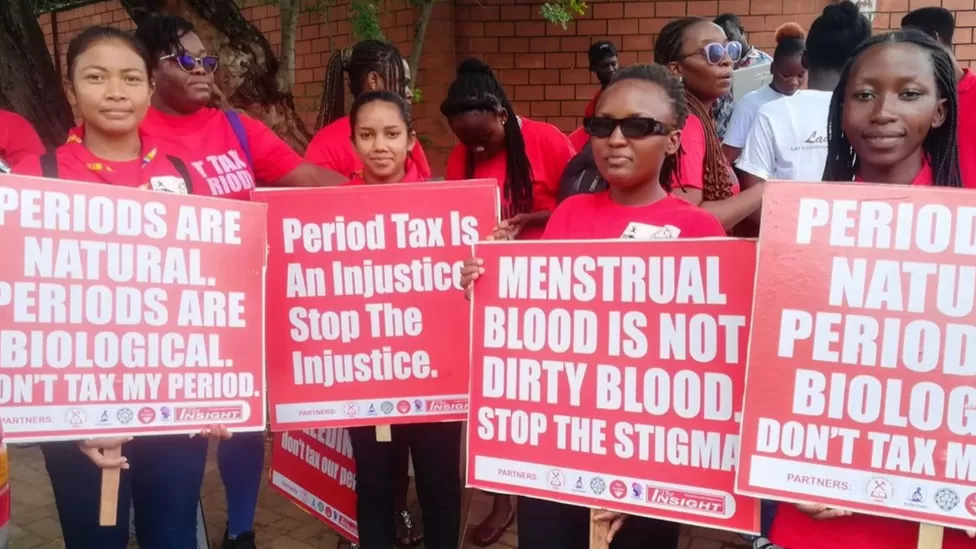In Africa, women are being priced out of buying sanitary ware

Ghanaian women earning the minimum wage spend one dollar on sanitary pads for every seven dollars they earn, according to research
To see how affordable period products are in Africa. As a result of comparing the minimum wage to the local cost of the cheapest sanitary pads, many women were unable to afford them.
Women across Africa are struggling with “period poverty” – something activists are trying to change – as Ghana had the least affordable menstrual products of the countries we surveyed.
During her period, Joyce, a 22-year-old Ghanaian, can’t afford to buy what she needs.
The only person who can help wants sex before he gives me the money. I have to do it because I need pads for the month.
For two packets of sanitary towels containing eight pads, which many women will need each month, women on the minimum wage have to spend between 3-13% of their salary in six of the countries studied.
As a grocery store assistant, Joyce lives with a family friend and survives on tips. When sanitary pads cost 4.88 Ghanaian cedis (45 US cents; 35 UK pence) per pack, she could afford them.
Due to the government’s tax increase on sanitary products, a packet of pads now costs 20 cedis, making them out of reach for her.
In June 2023, women protested outside Ghana’s parliament over price increases.
When toilet paper proved unsustainable, Joyce gave in to sexual demands in exchange for cash for pads. Despite Joyce’s struggles, there are many others.
It calculated its findings by taking the minimum statutory wage in each of the nine countries studied, and using the lowest priced pads available locally.
Products in Ghana were found to be the most expensive on a monthly basis.
In Ghana, a woman earning $26 a month would have to spend $3, or one of every seven dollars, to buy two packets of sanitary towels containing eight pads.
Thus, they must spend 11 cedis on pads for every 80 cedis they earn.
Compared to women in the US or UK, they would spend considerably less. In the US, a minimum wage earner would spend $3 out of $1,200.
In Ghana, Francisca Sarpong Owusu, a researcher at the Center for Democratic Development (CDD), says many women and girls are using cloth rags lined with plastic sheets, cement paper bags and dried plantain stems when they menstruate because disposable sanitary towels are not affordable.
Ghana is not the only country affected by this problem. There is an astounding impact on the global economy.
500 million women worldwide lack access to menstrual products, according to the World Bank.
Additionally, they lack adequate facilities for managing menstrual hygiene, such as clean water and toilets.
